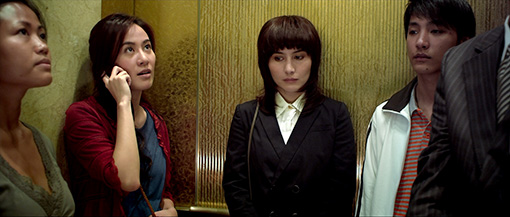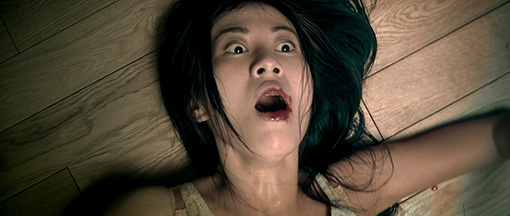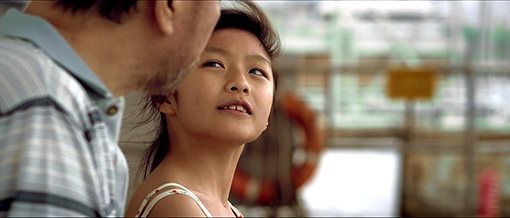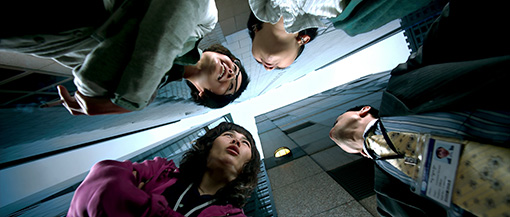|
For my fellow UK residents, here's a sobering thought about our capital city. According to a recent report published by homeless charity Shelter, in a city that houses over 8 million people there are currently just 43 homes that the average first-time buyer could afford to buy. Get that? 43. And they've probably been bought up since by slum landlords or overseas investors. As property prices in London soar, housing benefit for those at the lower end of the income scale is savaged and the so-called 'gentrification' of former working-class districts continues unabated, and the prospect of owning and even renting your own home in this increasingly exclusive metropolis is slipping ever further out of reach for ordinary working people. It's a process that has attracted the unflattering but frankly appropriate label of social cleansing.
It must be particularly galling to realise that the street in which your parents and grandparents grew up and spent their working lives is now the exclusive province of grossly overpaid, shiny-suited, elitist toads. It's symptomatic of a topsy-turvy world in which occupations that a fair and functioning society has no real need of – ones that anarchist author David Graeber labelled 'bullshit jobs' – are far more richly rewarded than those without which that same society would cease to function. Which is why a PR consultant could afford one of these houses and a nurse could not. But if we were to rid the world of all PR consultants, would anyone actually notice?

For many of us the concept of a so-called dream home is an abstract one, and we tend to settle instead for the best we can afford. And when I say best I meant best suited to our specific wants and needs. Some prefer flats over houses, for example, and that well-worn claim about the importance of location still tends to hold true. Then again, what would you do to get that dream house? Would you work every waking hour for years on end, only to watch the obscenity of market forces keep pushing the asking price just out of your reach? Would you kill for it, perhaps? Ah, now there's the rub.
Dream Home [Wai dor lei ah yut ho] is a curious but oddly fascinating melding of social drama and slasher movie horror. Made and set in Hong Kong, where in 2010 a flat with a harbour view could fetch HK$30,000 (that's about £2,500) per square foot of floor space, it announces its horror credentials in the very first scene, when an intruder throttles a dozing security guard with a large cable tie and the unfortunate man ends up slashing his jugular in a desperate effort to cut it off. It's a messy and protracted death, the sort of attention-grabbing opening that has become almost a staple element of modern horror cinema, as is the boiler-suited and initially unidentified assailant. Wait a second, is that a woman?
Your full attention is required from here on, as there are a number of timelines to keep track of and a fair few narrative dots to connect. Date captions get you started but after that you're on your own, and when we intermittently pop back to the opening scene timeline, there are time captions to keep note of as well. What emerges over the course of the next half-hour is that the killer is telesales marketer Cheng Lai-sheung, who has sacrificed a social life and taken a number of supplementary jobs to save the money she needs to buy the harbour view flat of her dreams. This, it turns out, is no vanity quest. We soon learn that as a child she and her family were driven out of their home by unscrupulous property developers in league with the local Triads using methods still employed by slum landlords today, and that later she pledged to buy a new place for her parents, but rising property prices prevented her from doing so before her mother died. Exactly why she takes to slaughtering the tenants of a plush apartment block is something that doesn't become clear until late in the film, but that hasn't stopped a number of reviewers from including it in their synopses. I can sort of see why, as the motivation for her actions is a point worthy of discussion, but in the spirit of spoiler-free fairness I'll endeavour to keep my trap shut on this.

What never really becomes clear is whether director and co-screenwriter Pang Ho-cheung is actually externalising his anger at the socially destructive nature of the Hong Kong property market or simply saw it as the offbeat launching pad for an insanely violent and taste-busting splatter movie. There are certainly times here when it feels like we're watching two separate films that have been creatively edited together – the social drama is sincerely and emotively developed, but Lai-sheung's killing spree is pure slasher horror with the nastiness dial turned up to 11. If you came for the gore then hang around and you'll get it, CG-assisted ultraviolence accompanied by sound effects that are loud and squishy enough to elicit audible groans from even a seasoned genre audience.
Where the attacks differ from those of the average slasher feature is that we have a degree of emotional investment in their perpetrator, an allegiance Pang repeatedly tests to its limit by having her kill not only those he sets up as being in some way deserving, but also those that tradition and all concepts of decency would dictate be spared or saved. Lai-sheung's stature and inexperience also make her somewhat more vulnerable than the usual genre movie monster, with almost every straightforward kill followed by one in which the victim fights back and gives as good as they get. And having rubbed our faces in the violence of the killings, Pang then pushes his luck further by adding a layer of jet-black humour, as Lai-sheung pauses murder spree to make a reassuring phone call, a disembowelled drug addict struggles for one last hit, and a victim comes back from the dead to launch a counter-attack, but with the long wooden beam used to orally assault her still projecting from her mouth.
I'm still not completely sure what to make of Dream Home. It's slickly assembled, and despite a small sprinkling look-at-me shots, Jia Zhangke regular Nelson Yu Lik-wai's cinematography is impeccable throughout. The well chosen cast are generally solid, and singer turned actress Josie Ho – who also co-produced – does a stand-up job as Li-sheung, and almost seems to relish the job of dishing out the violence.

Whether the social commentary and horror elements make comfortable bedfellows has been the subject of debate since the film's initial release back in 2010. And while there's no reason at all why they shouldn't be, Pang never tries to tonally align them and even seems to delight in their mismatch, stroking us with the flashback drama before smacking us in the teeth with the narrative present. It doesn't quite gel as well as it probably should, but it still made enough of an impression to haul me back for a second viewing the very next day, which I actually enjoyed a lot more than the first viewing had convinced me I would. And it's heartening to see a film made in 2010 that carries a closing textual reminder that the current financial crisis was not brought on by overspending on those who could never afford the sort of property that Li-sheung is prepared to kill for, but the irresponsible selling of sub-prime loans by the sort of greedy and unprincipled bastards who own and live in them.
An absolutely pristine 2.35:1 transfer, one of the sharpest and most detailed I've had in my Blu-ray player for some time. Shot on the Red One 4K camera, the image does have a sometimes inescapably digital sheen, but one that works well for the story, playing as it does like a reflection of the corporate sterility of the coldly observed cityscapes. The contrast range is well balanced and the black levels unwaveringly solid, which does suck in a little detail at the darker end. There are also a couple of burn-outs on the highlights, but the image is otherwise so well balanced and so beautifully crisp that I have no complaints. The colour timing avoids excessive tinting and the result is very pleasing. And yes, the blood is gruesomely red.
The DTS-HD Master Audio 5.1 surround track is a lively affair, with a vividly clear rendition of the dialogue and sometimes grisly sound effects, while Gabriele Roberto's score makes decent use of the track's expansive dynamic range. Surprisingly subtle use is made of the surrounds and the bass is not quite as punchy as I was expecting, but this is still an impressive mix.
The English subtitles are optional and clear.
Theatrical Trailer (1:35)
Unsurprisingly pushing the slasher aspect of the film, this follows the tradition of western trailers for foreign language movies by including no dialogue. Then maybe we won't realise...

Josie Ho Interview (9:36)
Lead actress and producer Josie Ho recalls getting the script and quickly deciding that this was exactly the sort of film that she wanted her company to make. She also assures us that the film is peppered with typical Hong Kong characters and discusses recording the song that is used in the film. Towards the end she is uncertain about whether she can say 'blow job' on camera, so mimes the action first.
Gallery (2:27)
A rolling gallery of behind-the-scenes and production stills that do not fill the screen in any direction, but are good quality otherwise.
Also included is a Booklet with an essay by Billy Chainsaw, but this wasn't included with the review disc.
In case you've somehow missed this when reading the above, if you're someone who abhors screen violence then do your self a serious favour and avoid Dream Home like the proverbial plague – see it by chance and you're likely to end up needing psychiatric care. That said, the indiscriminate nature of Lai-sheung's targets and the horrible realism of the CG and make-up effects are also still likely to offend a portion of the film's target audience, so I'd definitely proceed with caution on this one. Whether director Lang is successful in his attempt to meld personal drama, social commentary and slasher movie horror into a cohesive hole will be a personal call, but at the very least it's an ambitious and frequently eye-catching attempt (pun not intended but recognised as valid). If you're up for it then Network's Blu-ray release delivers a superb HD transfer, and while a few more extra features would have been welcome, this still comes cautiously recommended.
|